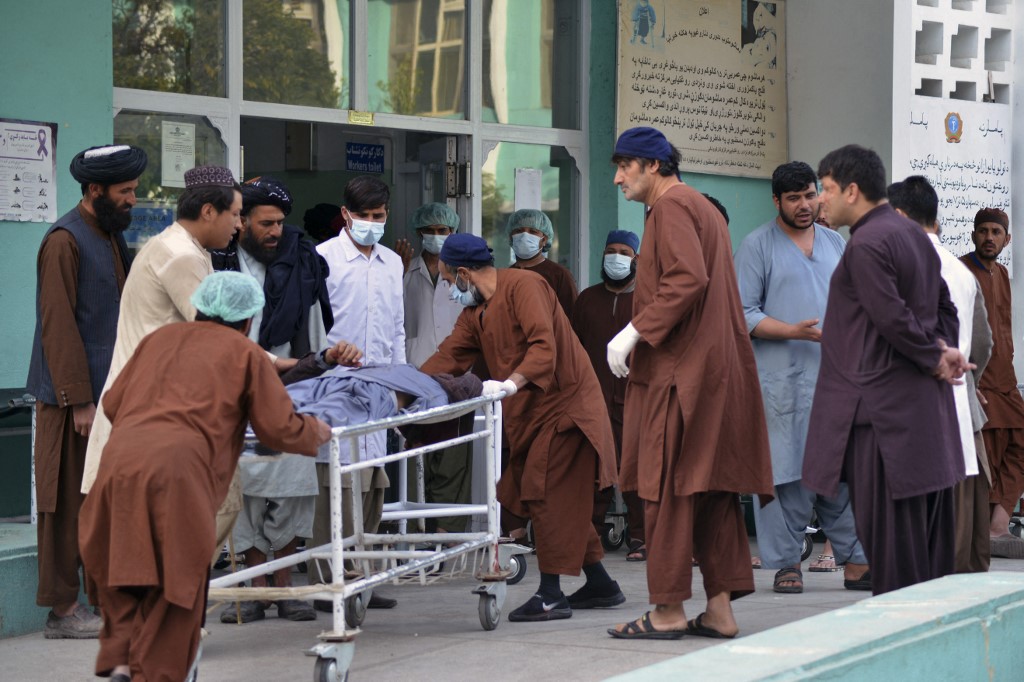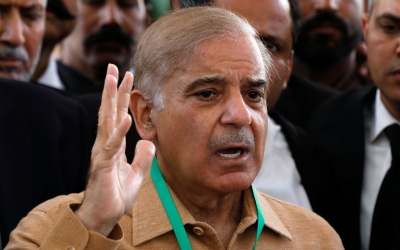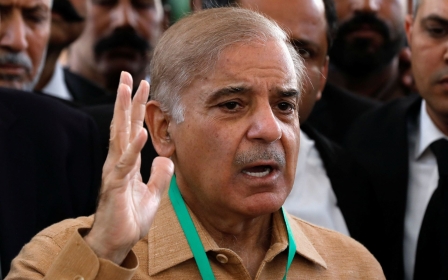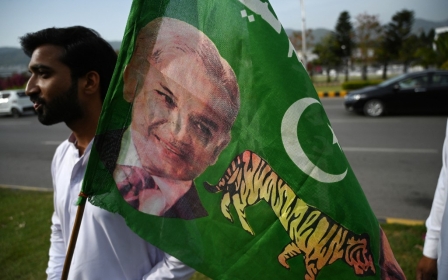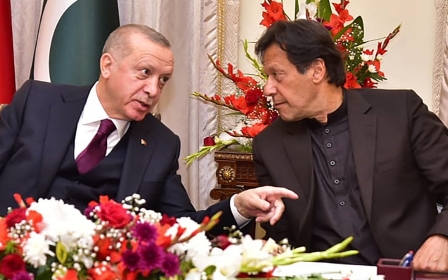The violence of Pakistan’s Afghan policy
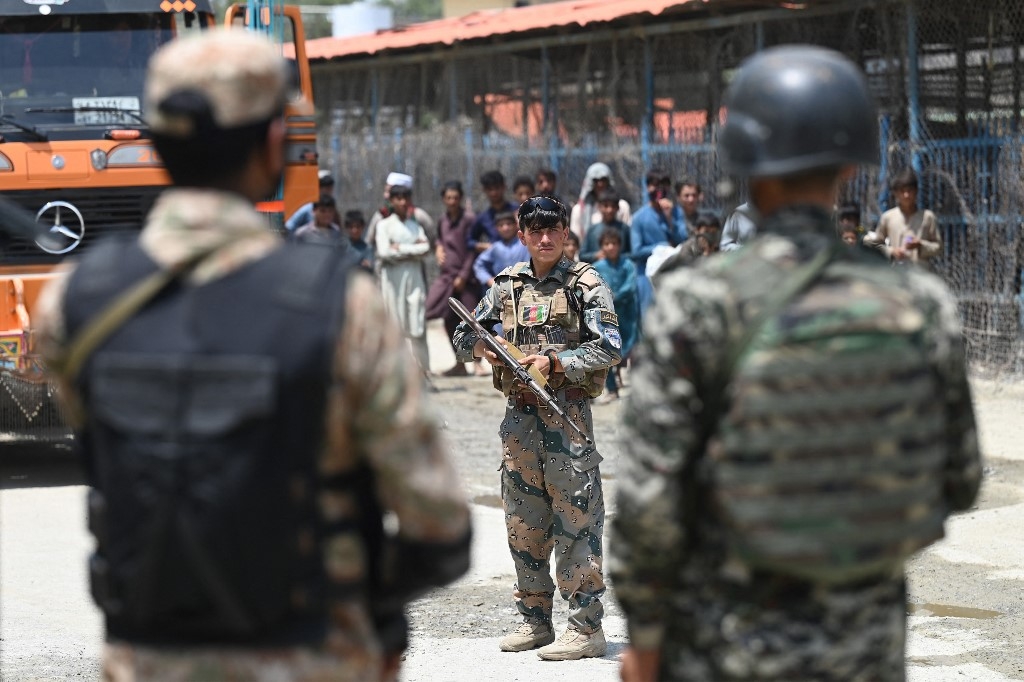
While Pakistan's high pitch political drama, which began last month after then-prime minister Imran Khan was removed from power through a no-confidence motion - continues apace, cross-border raids from Afghanistan have picked up, turning the simmering tension into deadly air strikes that have resulted in the deaths of almost 50 civilians.
These strikes showed the Pakistani military’s frustration with mounting cross-border attacks
On 16 April, Pakistani jets in a pre-dawn bombardment pounded two sites inside Afghanistan’s bordering provinces of Kunar and Khost, killing 47 tribal Pashtuns displaced from North Waziristan. Twenty children were among the dead, with the rest predominantly women.
These strikes showed Pakistan military’s frustration with mounting cross-border attacks.
During the last seven-plus months of Taliban rule in Kabul, the Tehrik-i-Taliban Pakistan (TTP), the umbrella organisation of Pakistani militants, has claimed over 250 attacks launched from Afghanistan, killing over 200 people, local media report. Official Pakistani sources accept losing 97 security personnel and killing 128 militants in the first three months of 2022. But the Afghan authorities deny the TTP is using their soil for cross-border attacks.
'Good Taliban'
New MEE newsletter: Jerusalem Dispatch
Sign up to get the latest insights and analysis on Israel-Palestine, alongside Turkey Unpacked and other MEE newsletters
Living 40km from Afghanistan’s border, I talked to families of the victims to hear the local side of the tragedy. Interestingly, all of them belonged to a territory on the Pakistan-Afghan border that in the past was controlled by the Gul Bahadur group, known in Pakistan as the “good Taliban".
Leading a militant group of the local Wazir tribe, Gul Bahadur had been the military’s ally against the TTP. In 2014, however, when the Zarb-e-Azb operation was officially started against the TTP in North Waziristan, some branches of the Wazir tribe, which straddles the Pakistan-Afghan border, took refuge with their Afghan tribal cousins in Khost.
Inside Afghanistan, the Bahadur group is allied with the Haqqani Network, a powerful component of the Taliban regime that US Admiral Mike Mullen once called a “veritable arm of Pakistan’s ISI”, the country's intelligence agency. While the Haqqanis and Bahadurs have a stronghold over the border’s southwest, the TTP, headed by scions of the local Mehsud tribe, is dependent on the Wazirs for access to the Afghan-Pakistan border.
Yet the TTP cross-border raids signify a shift in the dynamics of local militancy: either the Bahadurs and Haqqanis are not asserting their cross-border control anymore, or the TTP have their support for attacks against the military.
At any rate, ordinary people always bear the brunt of the Pakistani state’s love-hate relationship with militants. The killing of 47 Waziris in Khost and targeting of TTP militants in Kunar shows that Pakistan's military has ceased to distinguish between the “good” Taliban and the “bad”.
Earlier, the Afghan Taliban had convened multiple rounds of secret peace talks between Pakistan and the TTP, reaching a month-long ceasefire in November 2021. The two sides, however, failed to agree on extending it.
Pakistan sought the TTP’s unconditional surrender before allowing them to return to their homes. The Pakistani militants, on the other hand, demanded independent rule in Pakistan’s border region with Afghanistan. (Access to the border determines a share in the cross-border black economy and part of this profit goes into terror financing to reinforce local militancy.)
Failed ceasefire
This disagreement ended the tenuous ceasefire, resulting in a sharp rise in attacks on civilians and military personnel. Nevertheless, the government released 100 TTP members from jail.
Despite their complaints in the national media, Pakistani officials did not use their formal diplomatic and political channels to raise the TTP issue with the Taliban. This is also because Pakistan still sees the Afghan Taliban as their old proxies, simply because the latter had once operated from their safe havens in Pakistan, before the US withdrawal last year.
Ending this cycle of violence depends upon a redefinition of the military's role in national power politics
This misconception has long dictated the country’s Afghan policy. Once the TTP threat began to escalate beyond the military’s control, the traditional back-channel diplomacy was abandoned in favour of a violent show of power without recourse to political consensus inside the country.
This approach has always backfired, complicating Pakistan’s crippling security issues with Afghanistan. The Taliban also is a reincarnation of Pakistan’s contradictory Afghan policy.
In reaching the Doha deal with the US in 2021, the Taliban had promised that they would not allow the misuse of Afghan soil against any country. But the day they took control of Kabul, on 15 August 2021, roughly 2,000 TTP militants, who were held in jails by Afghanistan’s former US-backed Ashraf Ghani government, were released. Because the TTP had fought alongside the Taliban in driving the US out, the camaraderie between the two is understandable, but its cost is regional security.
The worsening security situation in the two neighbouring countries, therefore, is mutually reinforced by the double-dealing of their ruling regimes.
While half of Pakistan is feeling the heat of the Baloch insurgency in southwestern Balochistan province, or militant attacks in northwestern Khyber-Pakhtunkhwa, the national imagination is still occupied by the antics of the ousted Khan, the charismatic cricketer-turned-politician.
Imran Khan vs the military
After falling out with the military, which had installed him in the 2018 elections, Khan directed his guns at the US for plotting his removal from power. Creating a bizarre situation, Khan’s countrywide mass mobilisation campaign encouraged his followers to use a Twitter hashtag drive against the military leadership, a tactical move that created a moral panic in the military-controlled national media.
Amidst this cacophony of privileged mainstream voices representing cosmopolitan Pakistan, the worsening security situation in the marginalised border areas has received no media attention, except from the military's own perspective. While ethnic Pashtuns and Balochs are being killed as militants or their sympathisers, the spreading of militancy is hitting the state back in the form of increasing attacks on border security forces.
Ending this cycle of violence depends upon a redefinition of the military's role in national power politics. After a failed experiment in Khan’s four-year rule, the military seems to have got their lesson at the public's expense.
Last month, the military announced that Pakistan Army Chief of Staff Qamar Javed Bajwa would not seek an extension to his term and would retire in November. General Babar Iftikhar, the military spokesman, made the announcement at a media conference in Islamabad.
Earlier, Khan’s supporters blamed the army chief for seeking an extension to delay his retirement. While rejecting Khan’s allegations of a US conspiracy behind his removal from office, the military spokesman also cautioned that, “the army should be kept separate from politics.”
Yet the spirit of press event set a direction for the unfolding political circus, in which Khan’s conservative populism is calling the shots.
Ironically, those in Pakistan's military leadership who actually do politics do not admit doing it, but those who do not believe in parliamentary politics and are responsible for the country’s political crisis, especially the former Prime Minister Imran Khan and his party, have donned political robes in a proxy power play - in Pakistan known as a “hybrid martial law regime”.
This double game is continued inside the country in the form of national politics and outside the country’s border in the shape of Pakistan’s violent Afghan policy. Taking a high toll on civilian institutions, the fodder for this double game is the land and bodies of marginalised ethnic Pashtuns and Baluch, who are caught in militarised violence far from the national limelight.
Peace in the region is dependent on an end to these double standards at the level of politics and policy.
The views expressed in this article belong to the author and do not necessarily reflect the editorial policy of Middle East Eye.
Middle East Eye delivers independent and unrivalled coverage and analysis of the Middle East, North Africa and beyond. To learn more about republishing this content and the associated fees, please fill out this form. More about MEE can be found here.



